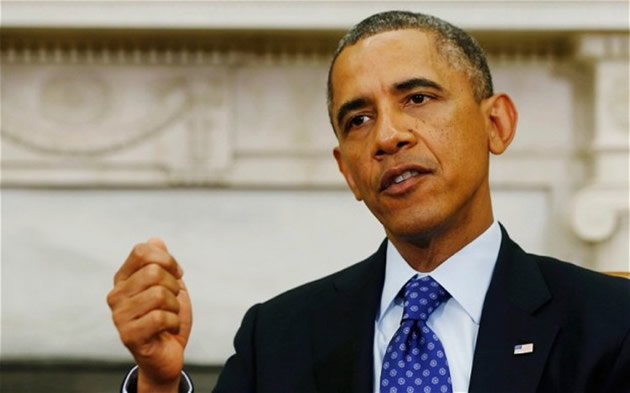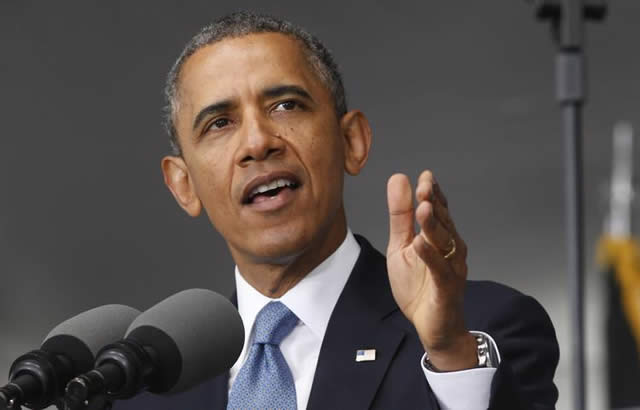United States as destroyer of nations

Daniel Kovalik Correspondent
In the aftermath of the US invasion of Iraq in 2003 — an invasion which many Iraqis believe left their country in the worst condition it has been since the Mongol invasion of 1258 — there was much discussion in the media about the Bush Administration’s goal for “nation-building” in that country. Of course, if there ever were such a goal, it was quickly abandoned, and one hardly ever hears the term “nation-building” discussed as a US foreign policy objective anymore.
The stark truth is that the US really has no intentions of helping to build strong states in the Middle East or elsewhere. Rather, as we see time and again – e.g., in Yugoslavia, Sudan, Libya, Yemen, Syria, Somalia, Ukraine — the goal of US foreign policy, whether stated or not, is increasingly and more aggressively the destruction and balkanisation of independent states. However, it is important to recognise that this goal is not new.
Indeed, South Korean human rights scholar Dong Choon Kim, writing of the US war in Korea (1950-1953) — a war which he opines was at least arguably genocidal — explains that even back then, the nation-building of Third World peoples was viewed as an act of subversion, which had to be snuffed out. As he explained, “the American government interpreted the aspiration for building an independent nation as an exclusive ‘communist conspiracy,’ and thus took responsibility for killing innocent people, as in the case of (the) My Lai incident in Vietnam.”
Thanks to the US war on Korea, Korea to this day remains a country divided in half, with no prospects for unification anytime soon. Kim explains that the Korean War “was a bridge to connect the old type of massacres under colonialism and the new types of state terrorism and political massacre during the Cold War . . . And the mass killings committed by US soldiers in the Korean War marked the inception of military interventions by the US in the Third World at the cost of enormous civilian deaths.”
Similarly, the US objective in Vietnam was the destruction of any prospect of an intact, independent state from being created. As Jean-Paul Sartre wrote as part of the International War Crimes Tribunal that he and Bertrand Russell chaired after the war, the US gave the Vietnamese a stark choice: either accept capitulation in which the country would be severed in half, with one half run by a US client, or be subjected to near total annihilation.
Sartre wrote that, even in the former case, in which there would be a “cutting in two of a sovereign state . . . the national unit of ‘Vietnam’ would not be physically eliminated, but it would no longer exist economically, politically or culturally.” Of course, in the latter case, Vietnam would suffer physical elimination; bombed “back to the Stone Age” as the US threatened. As we know, the Vietnamese did not capitulate, and therefore suffered near-total destruction of their country at the hands of the United States.
Meanwhile, for good measure, the US simultaneously bombed both Cambodia and Laos back to the Stone Age as well. To understand the purpose behind such violent and destructive actions, we need look no farther than the US’s own post-WWII policy statements, as well articulated by George Kennan serving as the State Department’s Director of Policy Planning in 1948:
We must be very careful when we speak of exercising “leadership” in Asia. We are deceiving ourselves and others when we pretend to have answers to the problems, which agitate many of these Asiatic peoples. Furthermore, we have about 50 percent of the world’s wealth but only 6,3 of its population.
This disparity is particularly great as between ourselves and the peoples of Asia. In this situation, we cannot fail to be the object of envy and resentment.
Our real task in the coming period is to devise a pattern of relationships, which will permit us to maintain this position of disparity without positive detriment to our national security. To do so we will have to dispense with all sentimentality and daydreaming; and our attention will have to be concentrated everywhere on our immediate national objectives. We need not deceive ourselves that we can afford today the luxury of altruism and world benefaction.
In the face of this situation, we would be better off to dispense now with a number of the concepts which have underlined our thinking with regard to the Far East.
We should dispense with the aspiration to “be liked” or to be regarded as the repository of a high-minded international altruism. We should stop putting ourselves in the position of being our brothers’ keeper and refrain from offering moral and ideological advice.
We should cease to talk about vague — and for the Far East — unreal objectives such as human rights, the raising of the living standards and democratisation. The day is not far off when we are going to have to deal in straight power concepts. The less we are hampered by idealistic slogans, the better.
While it would have been impossible for the US to continue to monopolise a full half of the world’s wealth after Europe, Japan, China and the USSR inevitably got up upon their feet after WWII, the US has nonetheless done an amazing job of controlling an unjustifiable and disproportionate amount of the world’s resources.
Thus, currently, the US has about 5 percent of the world’s population, and consumes about 25 percent of its resources. An article in Scientific American, citing the Sierra Club’s Dave Tilford, explains that,
“With less than 5 percent of world population, the US uses one-third of the world’s paper, a quarter of the world’s oil, 23 percent of the coal, 27 percent of the aluminium, and 19 percent of the copper. Our per capita use of energy, metals, minerals, forest products, fish, grains, meat, and even fresh water dwarfs that of people living in the developing world.” — Counterpunch.










Comments